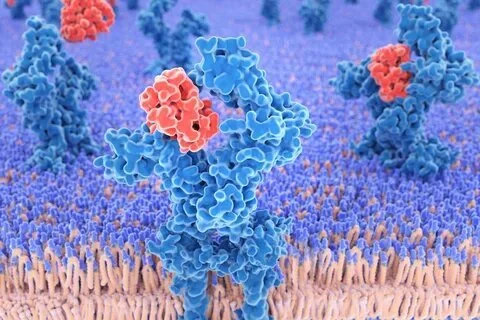The present situation demonstrated that many ill patients tend to have a high concentration of proinflammatory Cytokines, like interleukin-6, differentiated to moderately sick ones. The high level of cytokines indicates a prognosis in coronavirus. We summarise the clinical and pathologic aspects of the cytokine storm in coronavirus.
In 2019, covid-19 based disease was reported in Wuhan, China. The WHO (world health organization) named this coronavirus a severe acute respiratory syndrome coronavirus 2. This virus has affected 210 countries, and more than lakhs of cases have been confirmed across the countries, and many died.
Potential Treatments for Cytokine Storm
-
IL-6 Inhibition
TCZ (tocilizumab) is a recombinant humanized anti-human Interleukin-6 receptor monoclonal antibody, stoping interleukin-6 binding to its receptor to exert the immunosuppression prompted by interleukin-6 (IL-6). Some reported that 41-42-year-old men enduring respiratory failure due to SARS-CoV-2 infection.
In recent times a study has found that TCZ reduces CRP in all patients rapidly, but the patients who are seriously ill are still dead.
-
Corticosteroids
This glucocorticoid therapy is used universally among severe patients with other covid infections such as SARS MERS. Corticosteroids have been managed for ICU patients infected with SARS. Glucocorticoid shows pharmacologic effect at any therapeutically applicable dose through the classic genomic mechanism.
As it is controversial whether corticosteroids are beneficial in the treatment of coronavirus. A comment and meta-analysis are mainly based on the demonstration of SARS and MERS, stating that corticosteroids would raise mortality and procrastinate clearance of viral in covid-19 infection diseases.
-
PD-1 Checkpoint-Inhibitor
So lymphocytes are one of the characteristics of coronavirus, and a PD-1 checkpoint-inhibitor may help reverse the energy of lymphocytes. Until the end of 2020, no study of PD-1 checkpoint-inhibitors has been reported in the treatment of coronavirus.
Treatment antibodies aimed at PD-1 ligands have elicited a rise response in other cancer kinds, and in tandem with antibodies aiming cytotoxic-T- lymphocyte-associated antigen-4 changed cancer therapy completely.
-
Cytokine-Adsorption Device
This cytokine absorption includes using ECMO (extracorporeal membrane oxygenation) to filter hazardous substances directly. So an extracorporeal cytokine hemoadsorption deceive known as cytosorb has been reported to capture and decrease inflammatory mediators.
The same therapy includes dialysis. The primary water-soluble mediator is taken off from plasma, and the hemofilter may have different adsorptive properties. The clinical trial tests the constantly venovenous hemofiltration and adsorption for profound septic shock.
-
Intravenous Immunoglobulin (IVIG)
Intravenous Immunoglobulin can obtain passive immunity anti-inflammatory and immunomodulatory effects that may improve treatment effect and may rise survival in severe infections.
An IgG molecule binds to a specific aim antigen through the humoral and cellular arms of the immune system. The meta-analysis study found IgM-enriched polyclonal, and standard Ig molecules reduced mortality in adults with severe sepsis.
-
Hydroxychloroquine (HCQ)
Despite a lack of clinical demonstration, countries gave urgent acceptance to hydroxychloroquine, a member of the antimalarial agent in coronavirus. A meta-analysis involves the studies and shows that clinical trials and observational studies are eligible for the study. Unlucky, the author concluded that hydroxychloroquine has no clinical practice, including patients with critically ill coronavirus.
There are varied potential treatment options for Cytokines storm in COVID-19, and there are many laboratories at work to attain clinical development for the same. We at GeNext Genomics, play a valuable part in producing the treatments that help in the COVID-19 storm.
With our expert scientists and experienced professionals, we cater to the industry’s needs and provide services to the research and development sector.
Also Read : Cytokines, major role in COVID-19 Prognosis



